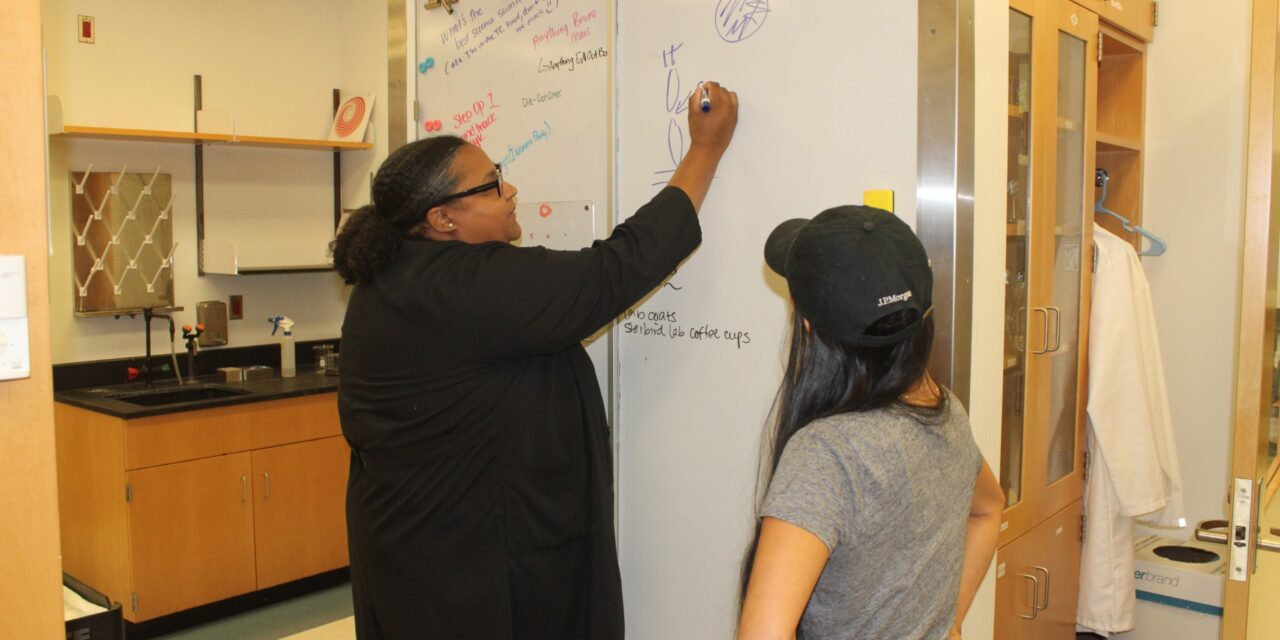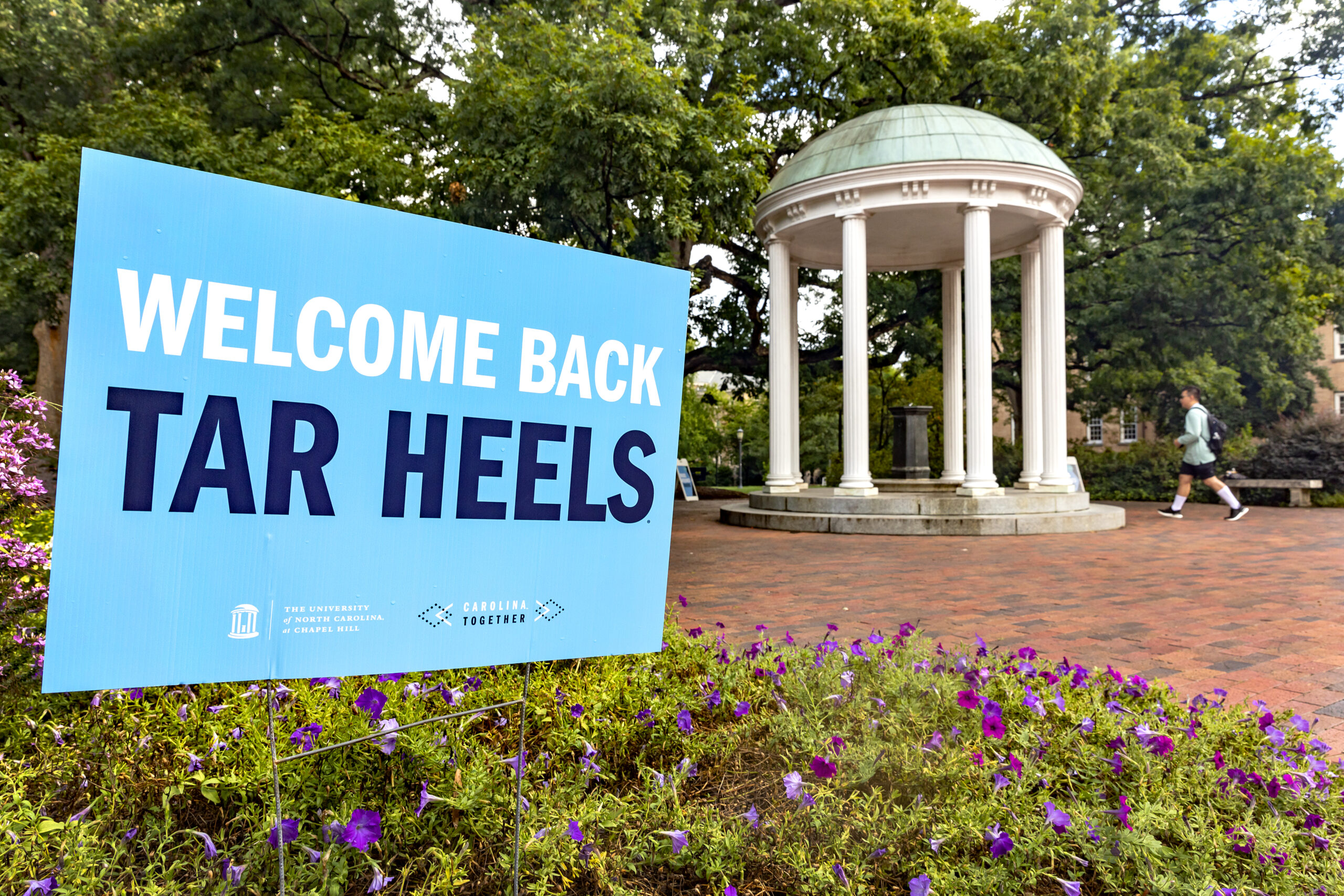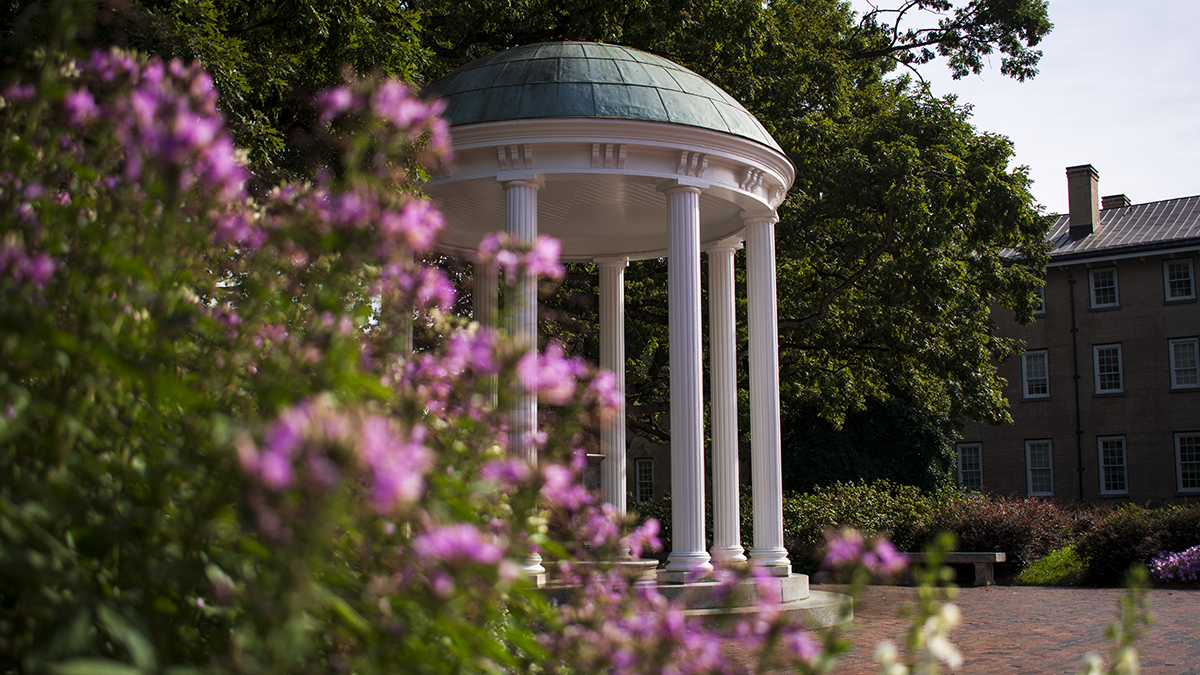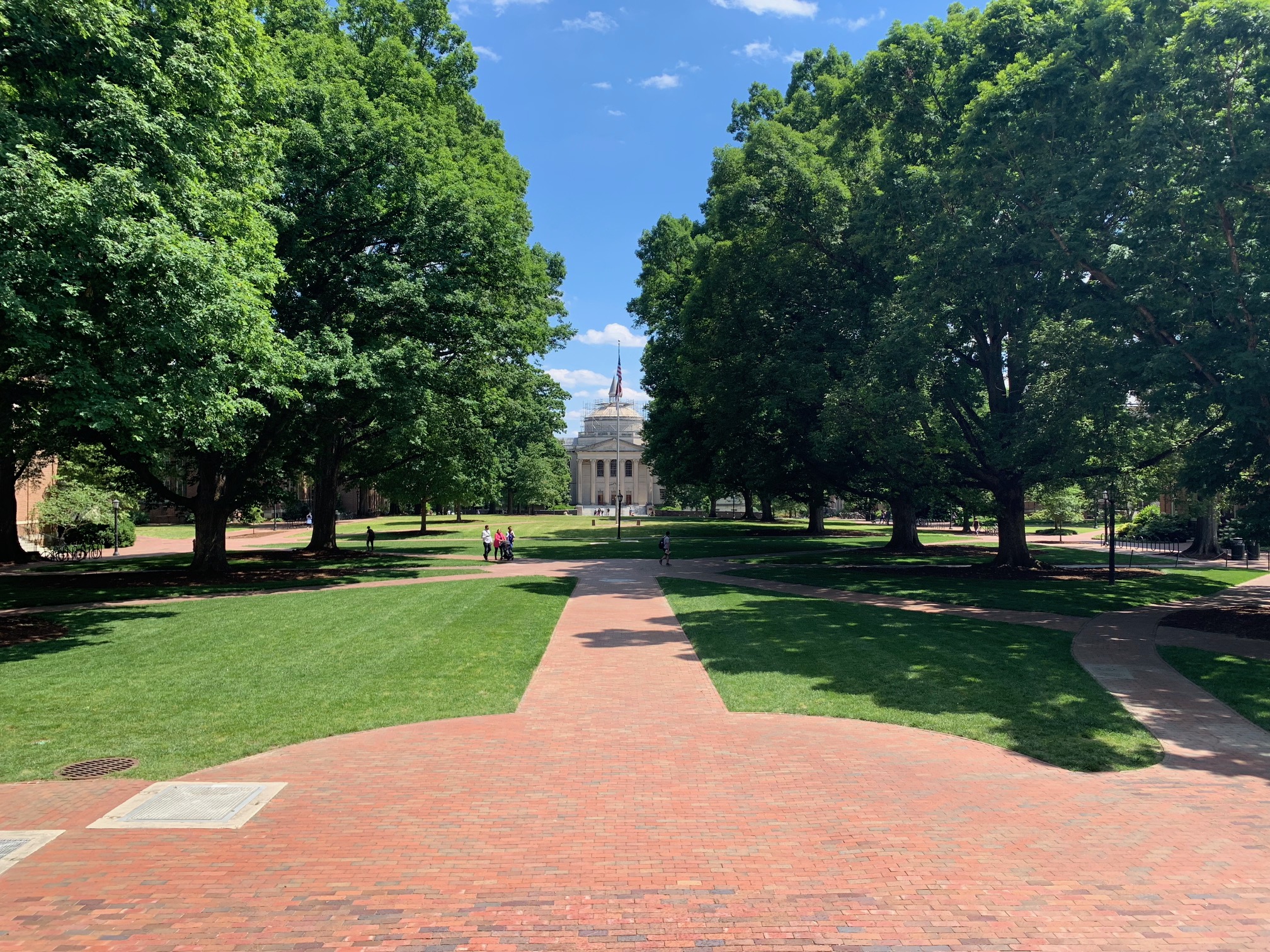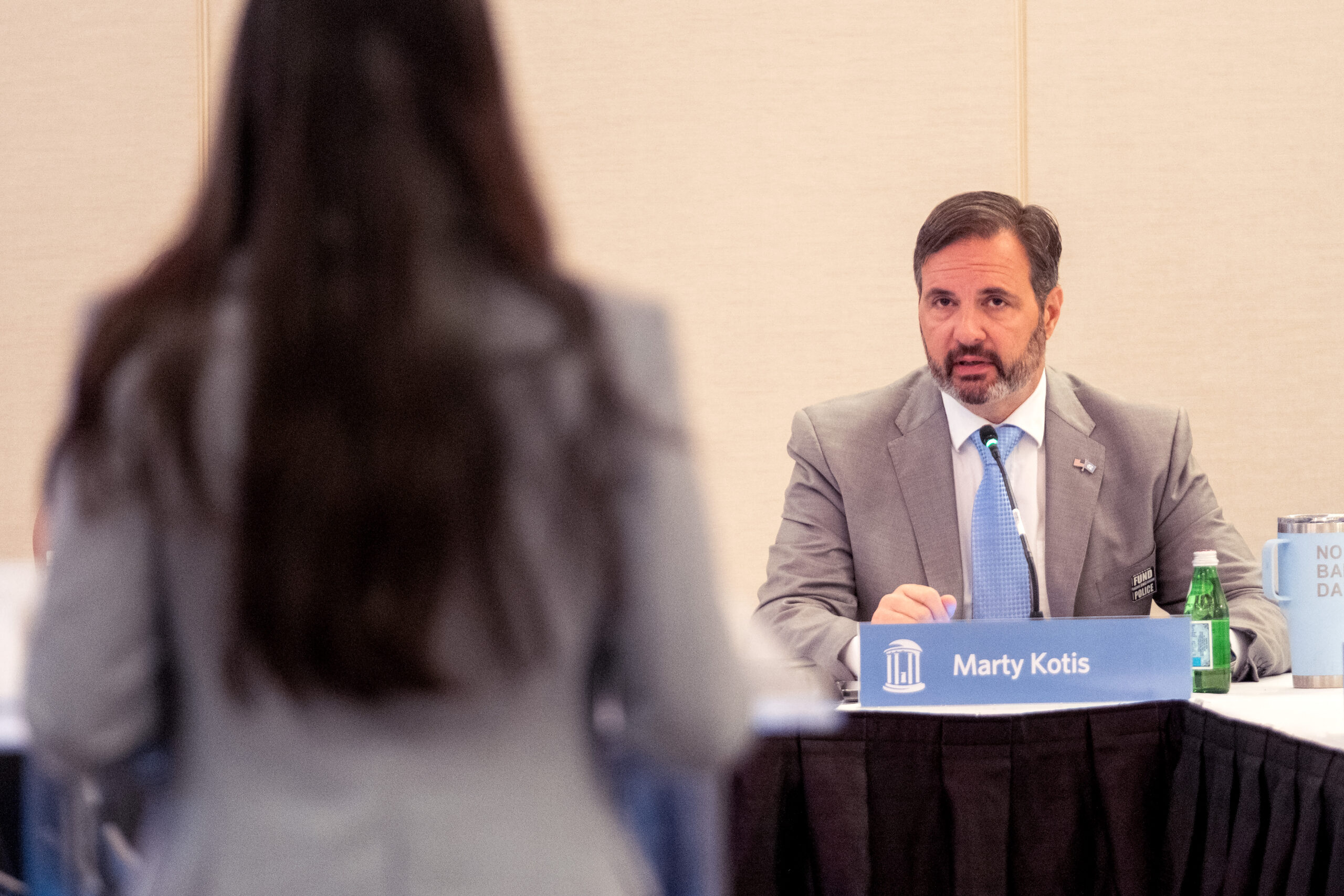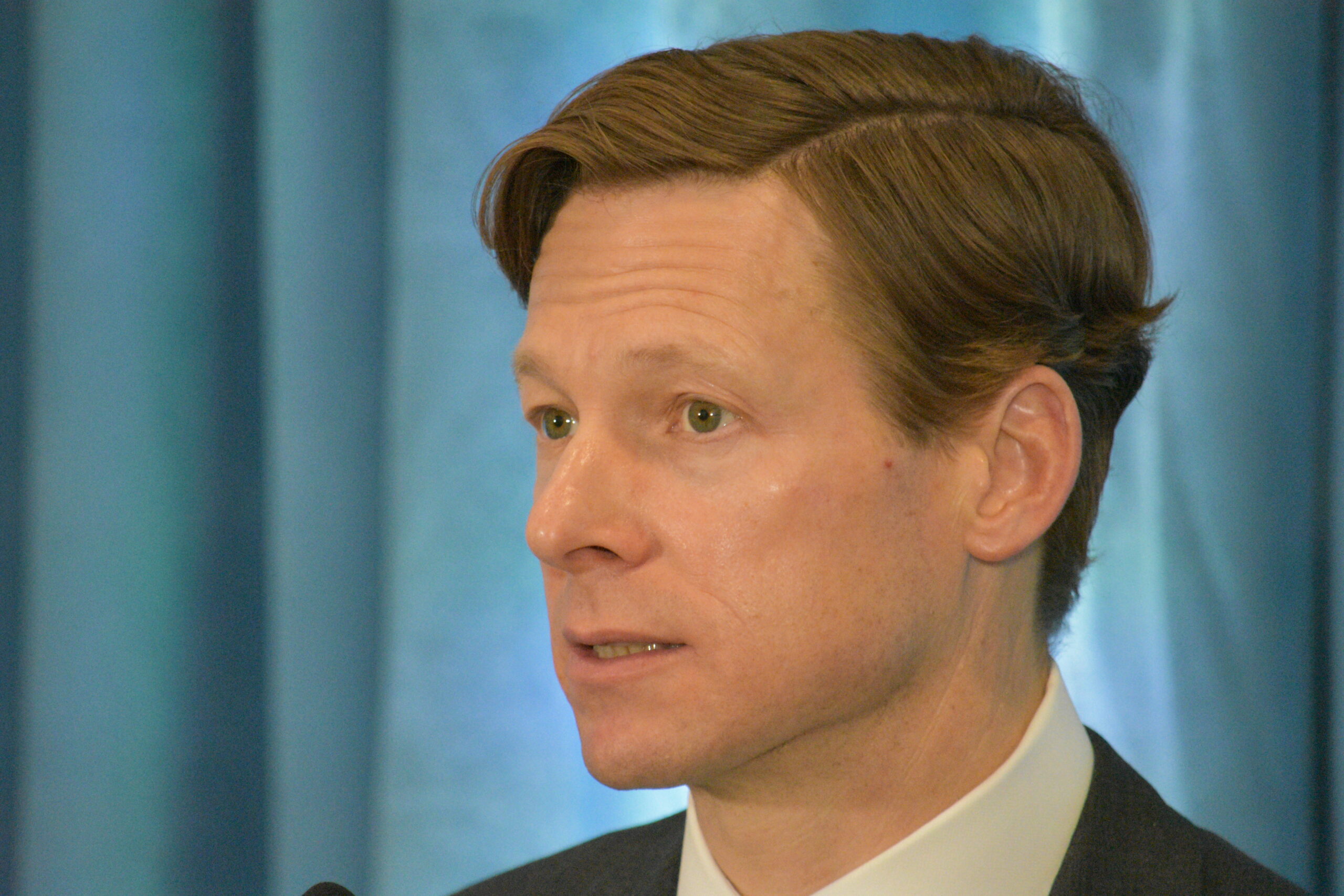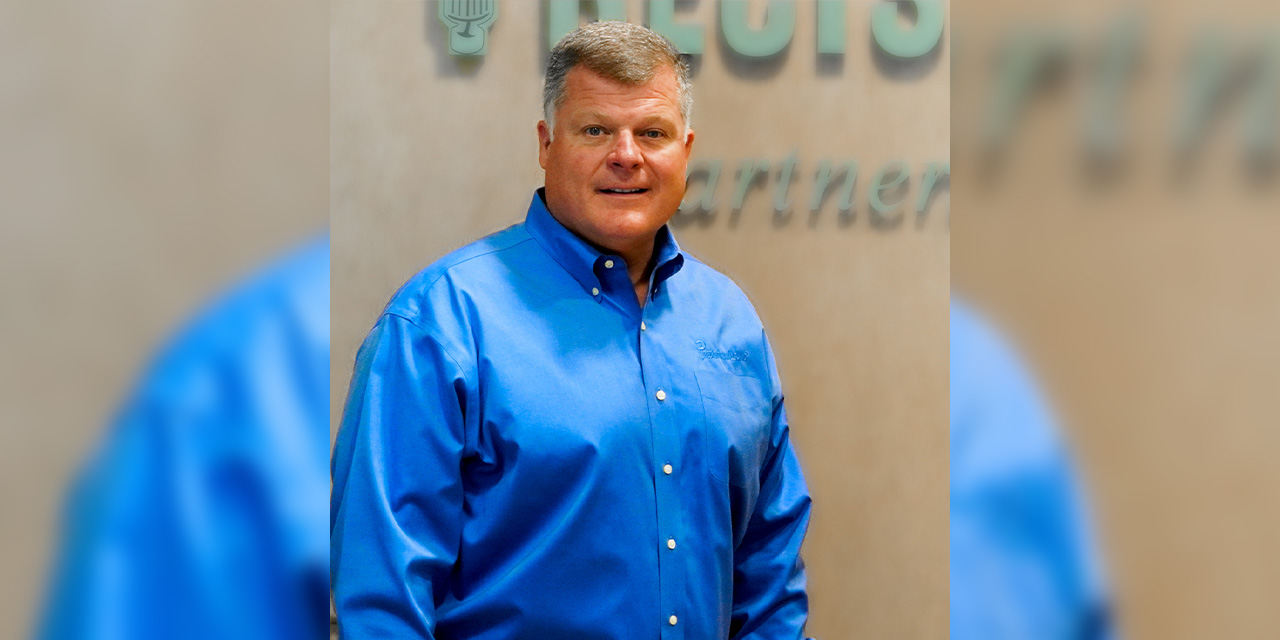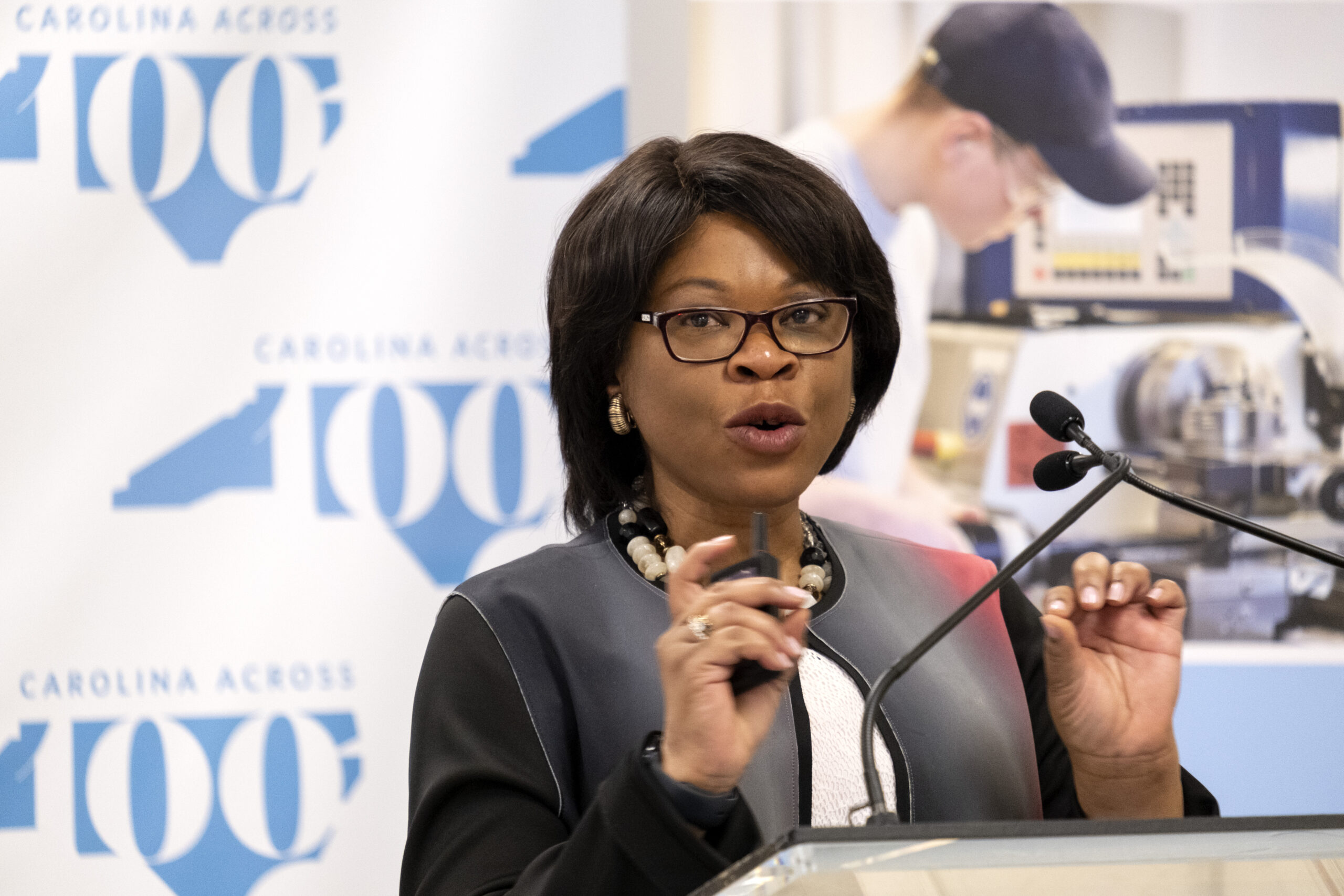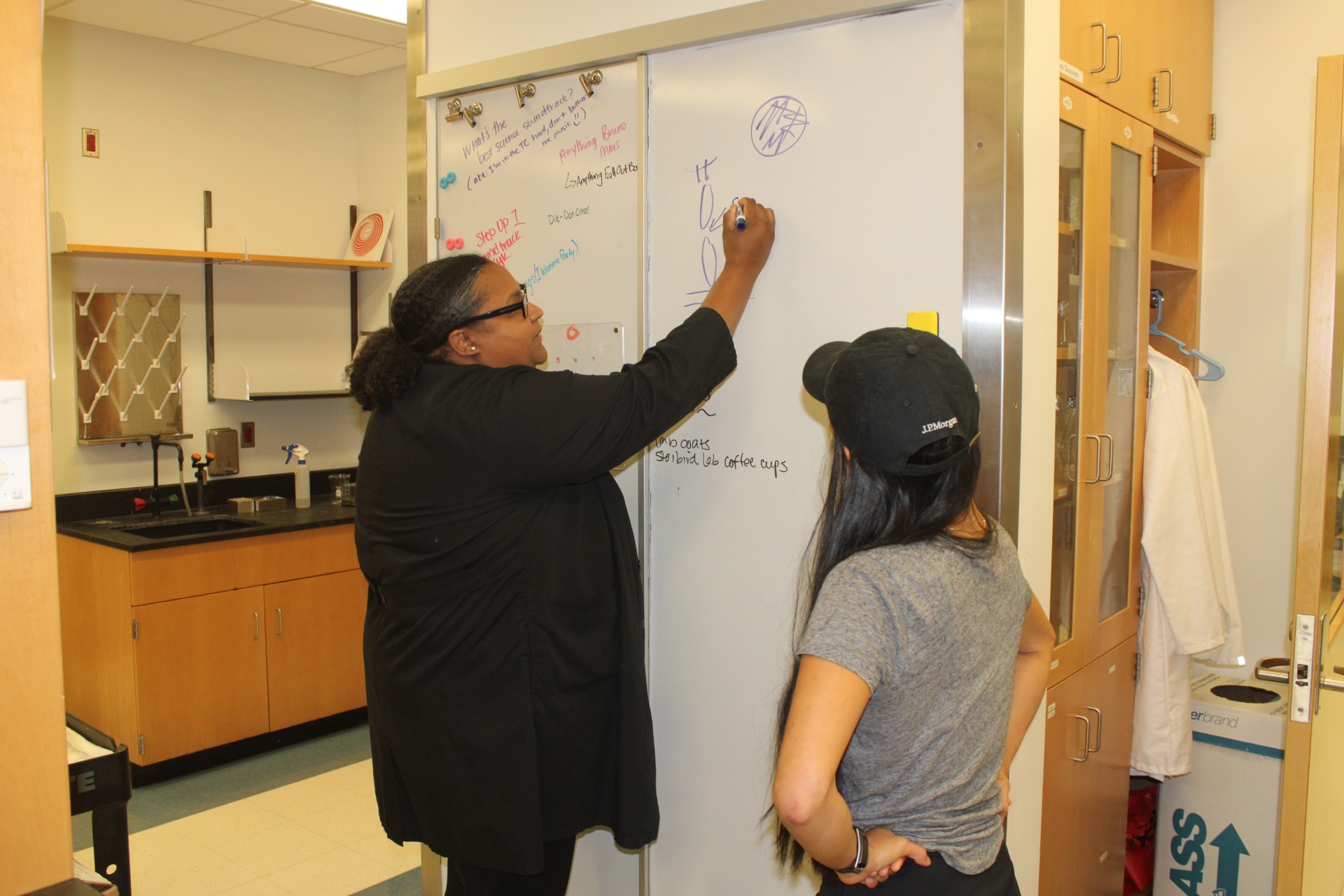At the end of January, Chrystal Starbird had just submitted her reviews of some grants as part of a panel considering roughly 60 projects requesting federal funding through the National Institutes of Health. But shortly after she sent them in, the structural biologist and UNC assistant professor got a message saying the study section for those grants was halted – and later, postponed.
“Our study section was supposed to be the end of January, and we rescheduled to mid-April,” Starbird tells 97.9 The Hill. “But most recently, it’s been paused again.”
While a U.S. district court judge issued a temporary restraining order on the funding freeze last month, Starbird’s experience reflects how additional grant reviews and applications have been stopped by the NIH not having access to the Federal Registrar to schedule such reviews and meetings on grants. It’s just one of the many ways the research world has been thrown into chaos by Trump’s administration in its early days.
Starbird says beyond panels’ inability to review and recommend new grants, the changes also affect current grant recipients like herself. Her lab at UNC – which studies cells’ membrane proteins to understand how they interact with treatments for diseases, like cancer – is partially funded by a federal grant that has one year remaining. Between the communication freezes, her grant having a diversity component and seeing its expiration date fluctuate online, Starbird says it’s been difficult to plan for what comes next.
“I still have no idea if that means the grant will actually be funded in the last year,” she says. “But our understanding – based on what the administration is doing and what they’re stating, not just inferring – is that grants like this might possibly be cut.”
As a result, Starbird and her lab team of seven others are already preparing for changes. Their work would be able to continue, she says, but a tighter budget would mean a reduction in salary and less funds for supplies. While they had the funding and opportunity, the team recently ordered a year’s worth of supplies to have on hand.
Other cancer-related research at UNC already faces similar problems with tight costs for fixing or replacing aging equipment and infrastructure. Federal funding often helps cover those costs, through facilities and administrative dollars issued to universities as part of awarded grants – which is also among the funding Trump’s administration appears set to drastically cut.
For Mark Peifer’s lab at UNC, which began in 1992, the lack of those costs would be difficult to overcome when they have things malfunction, as one of their cold storage units did earlier in February. Peifer’s research studies the signaling pathways of fruit fly cells, exploring how they communicate in order to understand how those cells in humans mutate and go wrong in cancer. Their work has specifically been helpful to colorectal cancer research – and while its expenditures include line items like fruit fly food, Peifer says every bit of spending goes back to furthering discoveries that help advance people’s health.
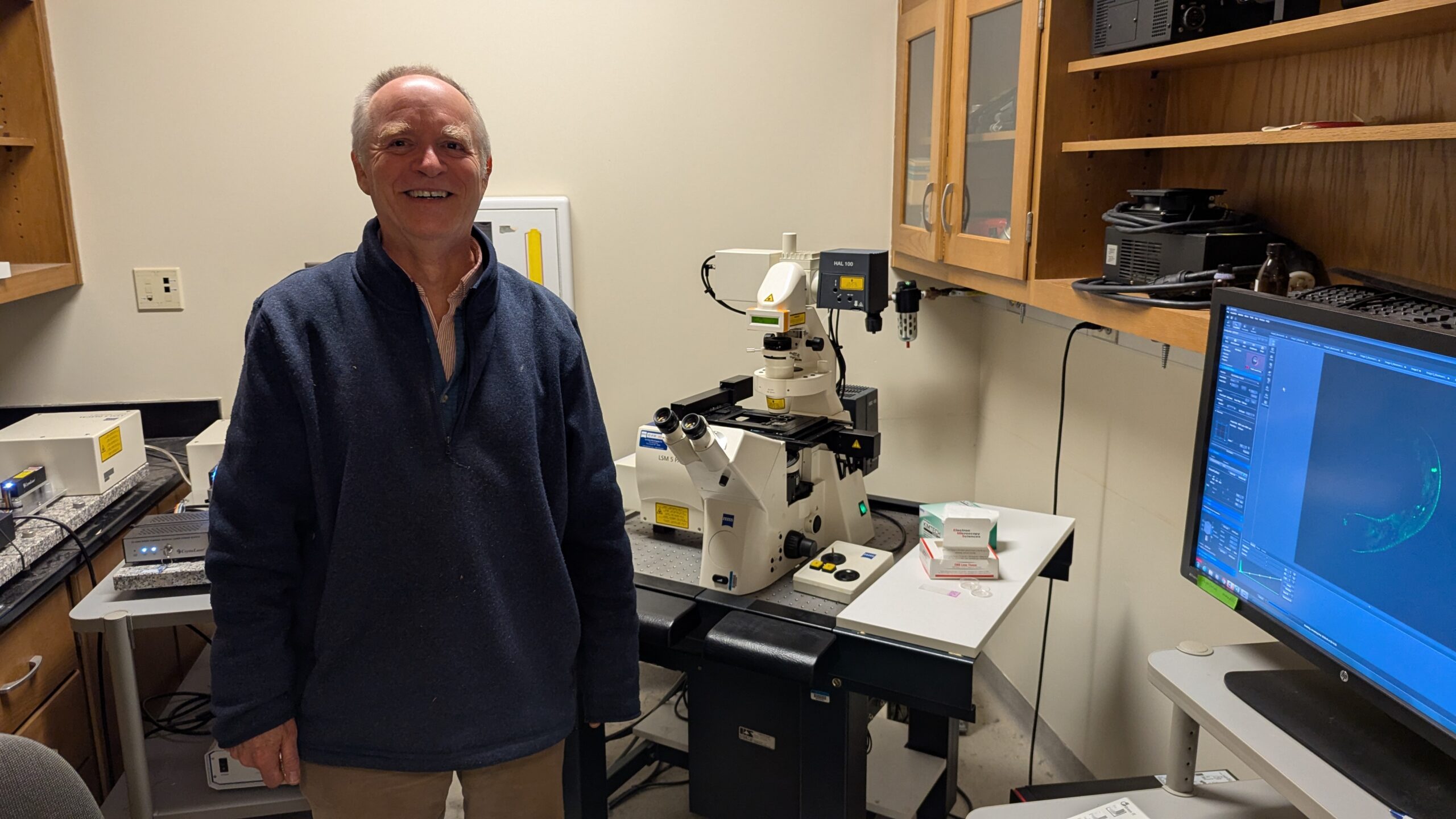
Mark Peifer stands next to one of his lab’s microscopes in a temperature-controlled storage room within Fordham Hall at UNC-Chapel Hill. He says without facilities and administration costs included in NIH grants, research institutions like UNC could struggle because of the ensuing equipment and maintenance costs. (Photo by Brighton McConnell/Chapel Hill Media Group.)
“This idea that there’s a lot of waste [within these federal grants]… I’m sorry, but oh my, we have to do a lot of paperwork,” the biologist says. “Every single dollar that I spend needs to be justified [and reported.] They’re not only keeping track of my budget, but they’re doing it in a way that can be reported back to the federal government to make sure that I didn’t use it to buy a resort home in the Bahamas.”
Like Starbird’s students and lab employees, Peifer describes the federal government’s upheaval as detrimental to his team’s mental health. Beyond his own circles, he says he’s concerned about federally funded programs that provide incoming undergraduates with the chance to experience research labs or help graduate student workers get acclimated to the research environment. Without such efforts, Peifer says, the next generation of scientists will be significantly affected – as will patients of their future discoveries.
“I wake up in the middle of the night every night and worry about it,” he says. “That’s the reality. During the day, I can channel my energies into doing my real job, my other real job [teaching undergraduates] – but in the middle of the night, I can’t. And I’m not just worried about science, I’m worried about our country.”
Dr. Carrie Lee, a medical oncologist studying lung cancer at UNC, is also keenly aware of how federal funding cuts would hurt patients. As the chief medical officer leading UNC Lineberger Comprehensive Cancer Center’s clinical operations, she oversees 200 people who work in the center’s research infrastructure that often overlaps with patient care. She directly works with patients in her own projects and practice, seeing how experimental treatments can help people from across the state.
“Often times,” Lee says, “that type of innovation is what leads to groundbreaking discovery that makes us, as a university, a leader in cancer research and what makes us as a country an international leader in scientific discovery. And academic contribution is really the bedrock for a lot of that innovation, and I think that’s what people don’t realize is at risk.”
Lee’s work, especially a grant-funded project examining how to expand novel therapy access to rural North Carolina hospitals, is also an example of how the Trump administration’s different actions overlap to affect the research world. In addition to being federal funded, her team had to quickly alter the wording of the grant to change its wording of diversity and equity components – largely discussing rural and under-served areas in the state. Because the grant is also funded through an office in the Food and Drug Administration that’s undergoing a downsizing, its future is unclear. That means, as Lee describes, one of her stage four lung cancer patients who travels two hours from Elizabethtown will have to continue making that journey for care while battling the disease, instead of the therapy being available at their local hospital.
“It seems it’s really important to educate the people who have the power to make these decisions,” says Lee. “We’ve got to be really careful about potentially cutting funding for research that is intending to reach people who are distant from the main academic center and don’t have the means to miss work [or] have frequent transportation to the university for participation in research or novel clinical therapies.”
Since Trump’s inauguration, UNC Chancellor Lee Roberts’ administration – as well as UNC System leaders – have lobbied in Washington D.C. to discuss the importance of their research efforts with lawmakers and federal officials. The flagship Chapel Hill campus received more than $531 million from the National Institutes of Health during the 2024 fiscal year, most of which came in the form of research grants. During an interview with 97.9 The Hill in January, Roberts said he and his team will continue to advocate for Carolina’s interests while awaiting actual policy from the federal government dictating specific changes.
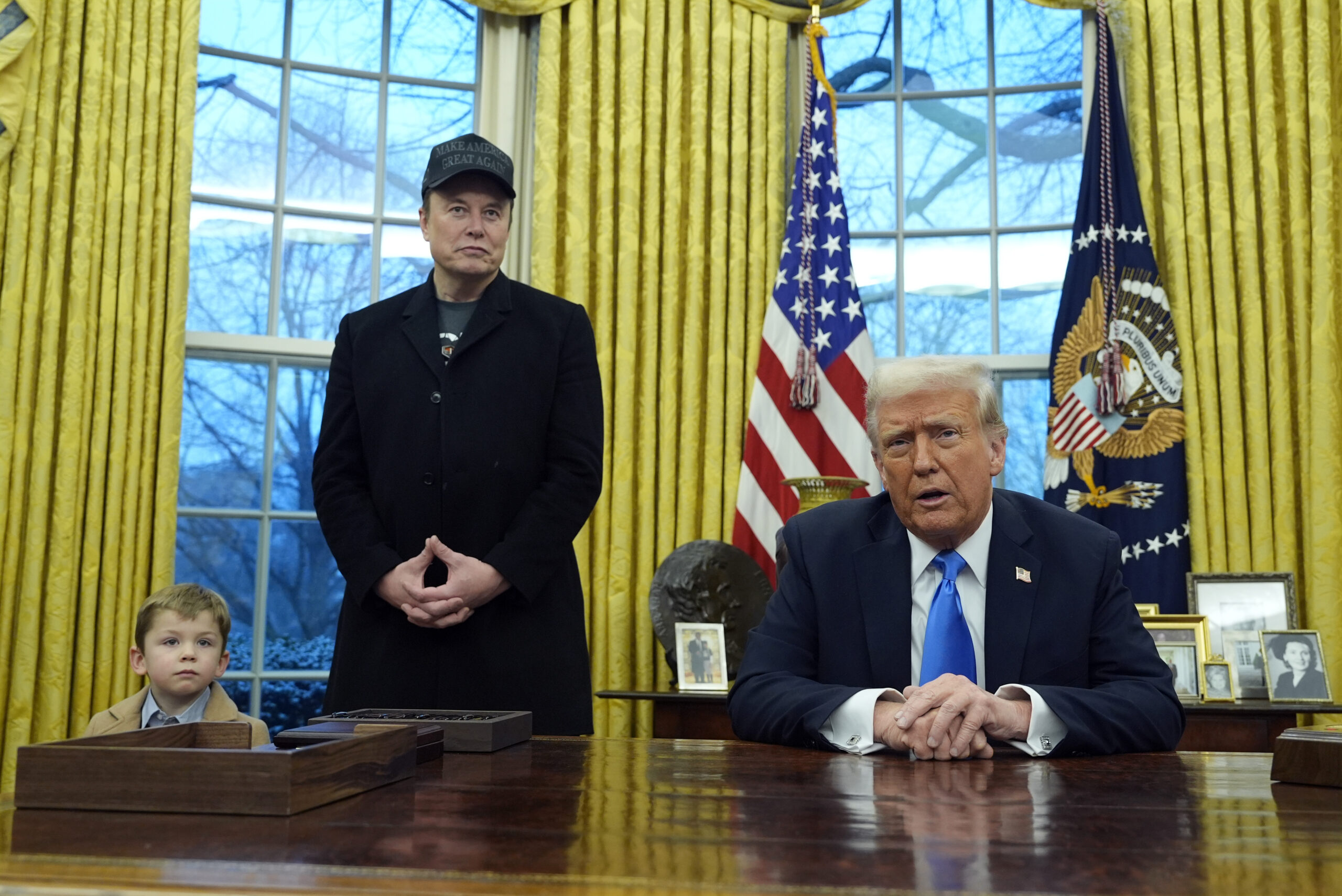
President Donald Trump has tasked Elon Musk to a non-cabinet position within his administration to drastically decrease the federal government’s spending. While some of the actions are already being challenged in court, the chilling effect on those agencies and the efforts they fund are already being felt. (Photo via AP Photo/Alex Brandon.)
But even in the short term, the Trump administration’s actions have already led to a delays for thousands of grants, which will have ripple effects through the academic research and clinical trial circles. Starbird is particularly attuned to this – not just from her involvement in grant reviews and own research, but her family’s personal experience. The biologist is aiding her mother in law through a cancer battle, and says she recently realized the drug treating her mother in law targets the same cell receptors Starbird’s lab studies. Seeing that treatment stage first-hand and knowing the process behind the product drives home just how important her work is, the UNC researcher says.
“What if one of those grants is the future drug that is going to help someone like my mother in law,” she asks. “If you imagine that the drug [she is] taking now had a few months delay, she wouldn’t be taking it – because it was just approved a few months ago.
“I think about how many patients might potentially be impacted by delaying these discoveries,” Starbird adds. “When you talk about a significant delay in this kind of research happening, you’re talking about future patients that won’t be saved by whatever’s going to come out of that research.”
Featured photo via Chrystal Starbird.
Chapelboro.com does not charge subscription fees, and you can directly support our efforts in local journalism here. Want more of what you see on Chapelboro? Let us bring free local news and community information to you by signing up for our newsletter.

